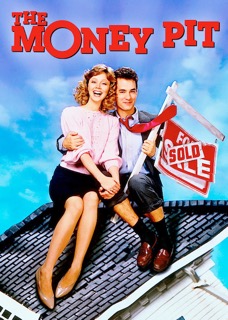“Landlords grow rich in their sleep without working, risking or economizing.”
– John Stuart Mill
The best investment on Earth is earth.”
– Louis Glickman
A question that comes up in conversation often with clients is, “Do you think it’s a good idea to buy real estate?” The quotes above, and many like them, make it seem like it’s an obvious, yes. Contrary to the quotes I used this week, it is not an easy answer, and generally, my reply to this is, “it depends.” There are a lot of challenges that await you and the math is really not as clean-cut as many people would like to make it seem. In this week’s “Inside Look” we will look at the math and the mindset behind owning real estate as an investment.
The decision to become a Landlord is not one that should be taken lightly. Many people begin looking at this with the idea that they will buy a building, live in a unit, and rent the others to pay for the building. Others look at this as an always appreciating asset that will give them a stream of income. While those things could be true, real estate, like any other investment, has its risks and downside. I will also point out that I am writing this from the building we live in and own. It will draw from my own personal experience and our first 2 years of ownership. So, what are some of the things you should think about when purchasing a building, and what misconceptions are out there?
Housing prices always go up- Most of the time, housing prices do go up over a long period of time. That can be much different than what happens over short periods of time. The Great Financial Crisis of 07-08 is a perfect example of that. Stock markets also tend to go up over long periods of time. A large difference is that you can’t log in to your computer and have an up to the minute ticker of your property value. People never see the swings that may affect their home prices. The amount and rate of appreciation will be affected by both local and national housing trends. Most of the places that were the best real estate investments 20 years ago are different than today. Chicago real estate lags behind the national price appreciation, but neighborhoods like the West Loop, Logan Square, and others outpace the market.
My wife and I bought a house in the Avondale neighborhood with the hope that the development would continue out the Blue Line in Chicago and be the next “hot” neighborhood, but there is no certainty in that.
Opportunity Cost- This is an often-overlooked cost of owning real estate. If you are buying a $500,000 and you put 20% down that $100,000 is now inequity in the building, but it is not earning anywhere else. Hopefully, your property is appreciating in value but, you will also be paying a mortgage, taxes, insurance, and upkeep on the building which could eat up the “gains” in your real estate. What else could you have invested in with that $100,000? If you could have earned 6% somewhere else you have an opportunity cost of $6,000 per year. That is also money that you cannot be easily accessible because it is an illiquid asset.
Illiquidity- Illiquidity simply means an asset is not easily converted into cash. If I have money in a bank I can get that pretty much the same day. If it is in the market it can take a few days to sell the positions and have the money in my hands. If I have real estate it could be weeks, months or I may not be able to access the equity at all. In addition, most of the options come at the price of having to pay interest.
Home Equity Lines of Credit (HELOC) are a possible answer. If you don’t have one already established, it could take months to get it processed. If you do have one, the bank can call it due. Meaning you have to repay it in full within a short period, and in 2008-2009 you saw that happen to some people. You can do a cash-out refinance, but that could take several weeks or months, and you generally pay higher interest rates on cash-out refinance loans vs traditional refinance loans. Also, consider that if you are in a situation where you have lost your job, you may not qualify for a loan at all and there is no way to get to the equity in the end.
Illiquidity can also work in your favor from a behavioral aspect. A possible contributing reason to why families with generational wealth often own real estate is that it is hard to sell quickly. This keeps family members from selling in a panic.
Tenants- We rent our first-floor like a traditional rental and my wife and I have been extraordinarily lucky with tenants, so far. Right now, we have the second set of tenants who just bought a house and are moving out soon. We are now having to try and figure out how to rent the unit in the middle of a pandemic. In the best of times, you will get 33% of people to show up for scheduled apartment showings. I could hire someone to do it, but that eats into cash flow.
As lucky as we are, I have heard nightmare stories of tenants in terms of noise, upkeep, and on-time payments. We have a very strict rental policy that helps us have the right tenants, at least, so far so good. Despite that, no matter what, you will have to deal with other people’s personalities. I’m a bit of an extrovert, so it is easier for me to deal with tenants than it might be for other people. It is a very real consideration of whether you want to deal with other people’s problems and quirks.
Clogged toilets- The upkeep of a building cannot be ignored. We have 3 units, including ours, which means 3 sets of appliances to break, 3 HVAC systems to keep up, and 3 toilets to keep unclogged. This is where being handy yourself could come in handy. Just remember, you are trading your time for money. In our first 2 years, there have been some things, such as replacing a leaky faucet and repairing some cracked tiles, that I could do. There have been other issues, like repairing a leak in the HVAC system and repairing a section of the roof, that we had to pay for. The building we bought was redone in 2012, so our problems are less than you may see with older buildings. Either way, there is a never-ending drip of expenses that you need to calculate. I look forward to the cost of replacing the roof and fence, which will be coming soon for us.
Taxes- Rental income is somewhat tax-inefficient. When you earn money as rental income, it is taxed as ordinary income. You will be able to write off maintenance, advertising, commission, etc. and any profit will be at your income tax rate, for a complete list of items you will write off, click here. This is as opposed to dividends from stocks that get taxed at capital gain rates, which is usually lower than your marginal income tax rate, or municipal bonds which may avoid state and federal taxes. You should consult your qualified tax professional to see how this topic relates to your situation
The Unknown- This is something my wife and I are going through right now. While talking with other landlords that we know, they all seem to have a crazy story that is not related to the topics discussed above. Our story is that we rent our basement unit as a long-term Airbnb. Generally, we have a 28-day minimum stay. Since we started doing this, it has worked out better than we expected, right up until the country went on lockdown. The person that was going to travel here from Singapore is no longer coming and the intern, that was going to be here for 10 weeks, is canceled. We did not plan for this in our spreadsheet and I’m not sure how we would have reasonably done so. You have probably read all this and thought, “Chris, with all these risks and concerns, why did you become a landlord?” Well, I will tell you, everything we do has some risks. I could probably come up with this kind of list for just about any asset you can think of. People just need to be aware of the risks ahead of time, having determined that the reward outweighs the risk. Plus, this adds some diversification to our overall financial picture, but not without some effort.
My wife and I decided in 2016 that we wanted to buy a home. We were planning on having children and my wife wanted us to own our home by the time she had given birth. We had no clue if we would want to continue living in the city after we had children, heck, we still haven’t fully decided on whether we should stay or not. We could have bought in the suburbs, but I am not really a “suburban guy”, I like the urban city life. We could have bought a starter home in the city; however, I also greatly dislike the idea of a “starter” home. Also, I like to look at life through a lens of creating wealth. We decided with the proper outlook, rigorous research, and a little bit of blind faith, we would become landlords.
It took us 16 months of home shopping, 7 lost bids (6 of which were over asking price), several cover letters for our bids, a few sleepless nights, and some tears before we found the place we call home today. It has worked out spectacularly, so far, and it would not have been possible without a lot of planning on our part, both from a time and money perspective. We knew what we wanted, didn’t accept anything less, and stuck to our stated goals. I will tell you, we questioned our approach a few times, but our real estate professional helped us out a lot. Having great professionals on your team, whether they be in real estate, tax, financial, or legal, can make all the difference.
In addition, the way we financed and planned during this process will allow my wife and I to buy our “forever” home sometime in between 2021 & 2023, location still TBD.
It would be great if the world just presented us with a lot of black and white problems and answers, but that is not how life usually works. Planning is just a series of iterations. We create a hypothesis based on all the information we have on hand. We test out that hypothesis, we learn from the results of our test, and then we repeat. If we can make enough good guesses in life, we should end up just fine.
Do you have any guesses you need help with? Please reach out and let me know how I can help.
Stay safe and keep doing your part to bend the curve!


